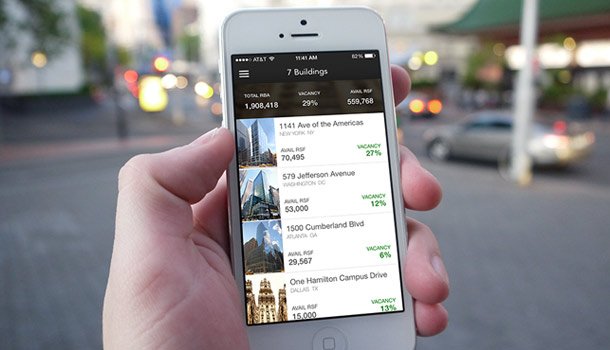The way that commercial real estate professionals go about their business has been reshaped by technology advancements over the last few years. The days of typing data into long Excel databases are a thing of the past, with automated systems integrating everything from contact databases to email and accounting.

With advancements being made in Big Data, smart cities and process automation, here are five ways that's having an effect on the way business gets done in commercial real estate.
Comprehensive property management platforms
Property management technology servers everyone from investors, landlords, property managers and tenants. With today's sophisticated new platforms from companies like ClickNotices, HappyInspector, SMS Assist, AppFolio, and BuildScience, property managers can keep track of everything from rent rolls to maintenance requests with just a few clicks. Investors can use the same platforms for real-time updates on how their properties are performing, while tenants can request maintenance using their smartphones. Certain platforms are designed to fit a specific niche within the commercial real estate market, for example controlling the facilities of multistory office buildings, or managing a collection of multifamily homes.
Lending marketplaces
Having already established themselves in residential real estate, lending marketplaces are now expanding into the commercial sector. Marketplaces like Money360, RealAtom and Rockfund offer fast access to all kinds of funding options for commercial real estate projects, connecting borrowers to the type of funding they seek, be it a traditional loan or crowdfunding.
Investment Marketplaces
Connected to that is the rising popularity of crowdfunding initiatives in commercial real estate. These kinds of investment marketplaces can connect borrowers with hundreds of potential lenders - normally private citizens - who're willing to invest small amounts of their savings into all manner of commercial real estate projects, including retail developments, offices, warehouses and more. Examples of crowdfunding sites that cater to commercial real estate include Cadre, Realty Mogul, Fundrise, RealtyShares, CrowdStreet, RealCrowd, and PeerStreet
Big Data analytics
The impact of Big Data is being felt across multiple industries, and commercial real estate is no exception. Analytics helps investors and property owners to make more informed decisions about the acquisition, management and disposition of their properties. Top platforms for commercial real estate analytics include Compstak, Honest Buildings, Rentlytics, redIQ, Reonomy, ReScour, and Propstack.
Listing services
The number of listing services and search platforms specific to commercial real estate continues to grow, with each new service offering new functionality or catering to a specific niche in order to stand out from the crowd. Listing services exist for flexible workspaces, multi-family properties, industrial spaces and many more, with some of the leading sites including Pivotdesk, RealMassive, Breather, Digsy, CREXi, Liquidspace, and 42floors.
New developments in commercial real estate tech are not limited to these top five trends. Other areas showing growth include property information, leasing management software, mortgage tech, virtual viewing, and tech-enabled brokerages. We expect these additional four emerging real estate trends to shape technology in the coming years.